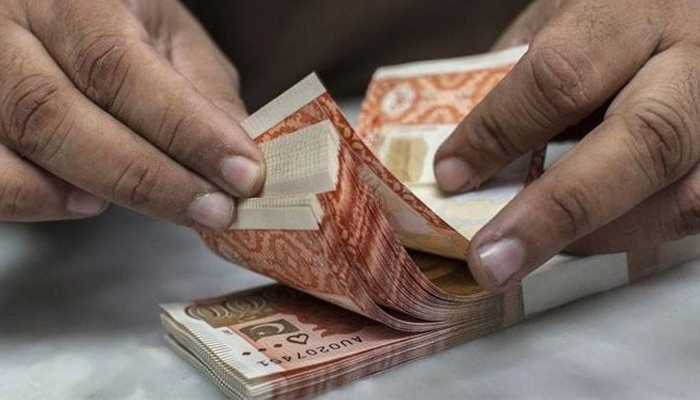Capital suggestion: Growth strategy
Pakistan risks drifting into a future where economic opportunities for its citizens remain constrained
The clock is ticking for Pakistan’s economic future. Decades of unrealized potential and missed opportunities cast a long shadow. Yet, Pakistan holds immense promise. Imagine harnessing the energy of a young population – Pakistan’s median age is a mere 20.6 years. Imagine capitalizing on its strategic location at the crossroads of South Asia, Central Asia, and the Middle East.
Now is the time to transform these advantages into reality. The urgency for a well-defined, comprehensive economic growth strategy has never been more pronounced. Without a coherent roadmap for investment, job generation, and price stability, Pakistan risks drifting into a future where economic opportunities for its citizens remain constrained.
The PML-N’s traditional economic growth strategy, built on three pillars – heavy infrastructure spending, an artificially strong rupee, and stimulating domestic consumption – will not work in 2024. First, Pakistan’s current financial constraints limit large-scale infrastructure projects. Second, the State Bank of Pakistan’s foreign exchange reserves, at $8 billion, can barely cover six weeks of imports. This lack of reserves undermines the ability to maintain an overvalued rupee. A new approach is needed to propel Pakistan’s economic growth.
This new economic growth strategy should address five crucial areas: privatization, attracting foreign direct investment, phasing out subsidies to public-sector enterprises (PSEs), breaking down domestic cartels, and fostering free trade.
Privatization: During General Pinochet’s rule, Chile achieved successful privatization of telecommunications, utilities, and airlines, setting a noteworthy precedent. Similarly, in the 1990s, New Zealand’s Labour government carried out a comprehensive privatization programme covering energy, telecommunications, and public enterprises. Additionally, Malaysia achieved success in privatizing utilities, transportation, and telecommunications sectors. These examples provide valuable models for emulation.
Foreign investment: Vietnam’s successful economic reforms along with a stable political environment positioned it as an attractive destination for foreign investors. Last year, Vietnam managed to attract $36.6 billion in foreign direct investment. Indonesia capitalized on its sizable population and strategic location in Southeast Asia to draw in $47.34 billion in foreign investment last year.
Subsidy reforms: In the early 2000s, Morocco undertook a successful subsidy reform programme within its energy sector. Similarly, Uzbekistan has implemented subsidy reforms targeting energy and utilities. Chile also stands as an example, having undertaken subsidy reductions for PSEs.
Dismantling domestic cartels: Vietnam, Peru, and Colombia serve as inspiring examples of developing countries that have achieved significant progress in dismantling domestic cartels and fostering competitive marketplaces.
Free trade: South Korea, Taiwan, Malaysia, Indonesia, Chile, Singapore, and Costa Rica all demonstrate the economic prosperity achievable through promoting free trade. Pakistan and India, close neighbours with immense potential, are poised to gain significantly from increased trade and regional economic integration. For Pakistani companies, this translates to accessing a vast Indian market of over 1.4 billion consumers, leading to potential sales growth and economic expansion. Open trade with India would also grant Pakistani businesses access to advanced technologies and expertise readily available in India, further propelling their growth.
Pakistan must seize this moment. Pakistan must unlock its true potential by implementing a comprehensive economic growth strategy focused on privatization, attracting foreign investment, phasing out subsidies, dismantling cartels, and embracing free trade.
The writer is a columnist based in Islamabad. He tweets/posts @saleemfarrukh and can be reached at: farrukh15@hotmail.com
-
 Worst Cricket Moments That Shocked The Game
Worst Cricket Moments That Shocked The Game -
 Prince Harry, Meghan Markle Reach A Crossroads: ‘You Could Lose Everything’
Prince Harry, Meghan Markle Reach A Crossroads: ‘You Could Lose Everything’ -
 F1 Title Race: Who Will Win 2026 Drivers’ And Constructors’ Championships?
F1 Title Race: Who Will Win 2026 Drivers’ And Constructors’ Championships? -
 New Observatory Sends 800,000 Asteroid Alerts In One Night
New Observatory Sends 800,000 Asteroid Alerts In One Night -
 Cher’s Son Elijah Blue Allman Apprehended On Two Counts Of Assault At Elite Prep School
Cher’s Son Elijah Blue Allman Apprehended On Two Counts Of Assault At Elite Prep School -
 Beatrice, Eugenie Now Face Andrew, Sarah's ‘nightmares’: 'They're Hugely Conflicted'
Beatrice, Eugenie Now Face Andrew, Sarah's ‘nightmares’: 'They're Hugely Conflicted' -
 X Debuts Topic Filtering To Help Users Shape Their ‘For You’ Recommendations
X Debuts Topic Filtering To Help Users Shape Their ‘For You’ Recommendations -
 Scientists Built World's First Computer That Learns Like Human Brain
Scientists Built World's First Computer That Learns Like Human Brain -
 Robert Carradine’s Daughter Makes Bombshell Confession As Actor's Death Cause Confirmed
Robert Carradine’s Daughter Makes Bombshell Confession As Actor's Death Cause Confirmed -
 Beatrice, Eugenie Put On Blast: ‘Only Nitwits Wouldn’t See An Association With A Pedophile As Toxic’
Beatrice, Eugenie Put On Blast: ‘Only Nitwits Wouldn’t See An Association With A Pedophile As Toxic’ -
 OpenAI Defies Industry Pressure, Secures Guardrails Under New US Defense Department Pact
OpenAI Defies Industry Pressure, Secures Guardrails Under New US Defense Department Pact -
 'Sinners' Delroy Lindo Breaks Silence On BAFTA's Tourette’s Incident At NAACP Image Awards
'Sinners' Delroy Lindo Breaks Silence On BAFTA's Tourette’s Incident At NAACP Image Awards -
 Billy Joel Admits Cancelling Of Tour Due To Brain Disorder 'sounds A Lot Worse' Than It Is
Billy Joel Admits Cancelling Of Tour Due To Brain Disorder 'sounds A Lot Worse' Than It Is -
 US And Israeli Strikes On Iran: Everything You Need To Know
US And Israeli Strikes On Iran: Everything You Need To Know -
 US Strikes On Iran Ignite Emergency Push For Powers Legislation: Report
US Strikes On Iran Ignite Emergency Push For Powers Legislation: Report -
 Kelly Osbourne's Mom Sharon Receives 'shut Up' Call Accepting An Award For Late Hubby?
Kelly Osbourne's Mom Sharon Receives 'shut Up' Call Accepting An Award For Late Hubby?




